Podcast: Download (Duration: 41:52 — 38.5MB)
Get Notified Of Future Episodes Apple Podcasts | Spotify | Amazon Music | Android | Blubrry | Gaana | TuneIn | Deezer | Anghami | RSS | More
Podcast highlights:
01:30 – The next generation of online marketers
02:33 – Coming from Australia for a US event
03:42 – A big event
07:59 – The return on investment
09:36 – Done for the year
10:27 – No longer in that phase
12:34 – Where the ideas come from
13:43 – Do you need a lot of notes?
14:34 – Automation and computer games
15:30 – What could have been better
16:19 – Still a niche community
18:20 – The advantages of going broad
20:07 – E-commerce vs. software as a service
21:48 – Business opportunity or business education?
23:48 – From gen pop content to business ed
25:18 – Pros and cons of information publishing
29:48 – James’s debt to Ezra
30:41 – Growth for the sake of growth?
32:45 – No need for a watch
34:06 – The marketing around the event
37:09 – Some interesting themes hit on
38:42 – Wrapping things up
Inject new life into your business with one-on-one coaching from James. Click HERE
Transcription:
James: James Schramko here. Welcome back to SuperFastBusiness.com. This is episode 581, which is a lot more episodes than we managed to put out on Think Act Get. Welcome Ezra Firestone, my buddy, it’s so good to have you back on a show of any kind.
Ezra: Whoo-ey. Five-hundred and eighty-one. Boy!
James: My favorite quote of yours, Ezra, was just a few weeks back, we were chatting. We got on to Skype and you said to me, “Hey, we should do more Think Act Get episodes.” You crack me up, bro.
Ezra: You know, the occasional episode. I think it’s important that you bring it back.
The next generation of online marketers
James, I want to paint a picture for you, okay? So, just see this in your mind’s eye. There is a legion of, I want to say 14 to 19-year-olds, alright? They’re running through the conference halls, they got their iWatches strapped on, their noise-canceling headphones blaring tech music in their ear. They’re banging down two liters of Pepsi and they’re just devouring online marketing content. I cannot tell you, you and I just came back from a series of different events and I was at three or four different events in that tour. And I am just so over – I don’t think “overwhelmed” is the right word, but impressed by this next generation and the fervor that they have for the subject matter.
And just like, they all are kind of wearing hoodies, and they all have like a similar look in their eye and they’re just like, it’s interesting to see another wave of folks coming up through the online marketing world, because, you know, we were those guys 10 years ago.
When you come from Australia to attend a US event
James: I was reflecting on that. The most recent big event that I went to was Traffic and Conversion in San Diego. And it actually sort of came to my frontal sort of focus that this is my 10th year campaigning to the US. Now, it’s not quite the same as hopping on a plane even from the East Coast of America. It’s a big deal to come from Australia, we have to go….
Ezra: Twenty hours, man.
James: Well it’s not just that, you’ve got to go from your home to the airport. You have to be there three hours before the flight. It’s a 14-hour flight.
Ezra: Wow.
James: Then you have transit, if you go from Los Angeles to San Diego, another stay. Now, I arrived at 9:00 or 10:00 in the morning, and my flight out was going to be at 6:30 or so, because we missed the plane by about 10 minutes.
Ezra: Oh, no.
James: And I just said, no, I’m just getting an Uber. So I Ubered from L.A. to San Diego.
Ezra: Smart man.
James: I was in the hotel sleeping by lunchtime, instead of waiting six hours in L.A.X., which is not the greatest of airports, if I’m being truly open, as I like to be on this show.
Ezra: Yeah, it’s terrible, it’s terrible.
A big event
James: And then there’s the event itself, which is, it’s a big event these days. It’s not like the one that was on in Texas.
Ezra: I have a confession, James Schramko. I have a confession. I didn’t make it to a single session. I did not make it to a single session.
James: You made it to the ones you spoke at.
Ezra: I made it to my sessions. Yeah, I made it to the sessions I spoke at, but I didn’t make it to a single other session.
James: This is one of my revelations, that I didn’t see a single session on the third day. And that’s very rare for me, because I’m extremely organized and disciplined.
Ezra: It felt like people were just there without tickets to network. It just felt like a whole bunch of people were there just to hang around and talk.
James: It’s become that. It’s something you go to for the networking. I don’t mean this in an offensive way, but I don’t think it’s an event you go to for the content, because the content… Here’s a few facts, right?
Ezra: Other than my sessions, they’re amazing.
James: No, your session was great, too. But this is what I’m saying, I’m not going to negate this. I’m being very respectful, because you are a speaker there as well. That you can’t actually watch all the sessions because they’re multi-tracking. So therefore, it makes sense to pick up the recordings. Therefore, you could do that from Sydney. You don’t have to hop on the plane and travel and spend all the money. I mean, you got to accommodate yourself, you have to eat meals, you have to transport. It’s a multi-thousand dollar thing to go. It’s about a five-thousand dollar round trip and a week of your life if you want to go to something like that.
Ezra: If not more.
James: Yeah, if not more. It was more for me because I went to Hawaii on the way back home to break up the trip, and I surfed 14 times in six days.
Ezra: Ooh, good pit stop.
James: Really had a good time. But here’s the thing. You can’t physically watch all the sessions because it’s multi-tracked.
Some of the rooms were not matching the capacity of the content, so you couldn’t even get into the room. A lot of sessions, you were locked out. And then some of the content that was presented is not necessarily appropriate or useful for your business at the particular stage you’re at.
Now, some of the sessions, I particularly enjoyed your session, which is always through the roof. Old Ezra Firestone always delivers on the good stuff.
Ezra: I’ve been working on that, toning it down. Cut my slides in half is my mantra. Cut the slides in half.
I didn’t not go to sessions because I didn’t want to or didn’t think the content was going to be amazing. I was just sick, man. We were supposed to hang out and go to dinner and do a bunch of stuff. Like, I had to save up my energy from the interview series I was doing and also speaking. And then other than that, I was like, in my room on the floor, not feeling well.
I’ll tell you one thing that they don’t tell you. You get marketed, Vegas, Vegas, Vegas. Vegas was good marketing, everyone wants go to Vegas. I went to Vegas, and I will tell you, it is not necessarily the most pleasant place in the world.
James: No. It’s just a dirty cesspool dump.
Ezra: I got sick, man. I had a really hard time in Vegas.
James: As soon as you leave the home, really, you’re out in society. You’re circulating in an airplane with other individuals in closed quarters. You have to go on a different food, generally, and you’ve got air conditioning.
In the case of traveling to another country, you’ve got to pick up different currency, you have to struggle with the accent. Sometimes people don’t understand me when I’m ordering food and things. It’s all a lot of extra work.
Ezra: People don’t understand you? Your accent is not that thick, man.
James: I have a very neutral Australian accent. But occasionally, some of these Californian girls who are in the stores, like the 20-year-olds, they speak a whole other language. It’s so fast and just rolls out of their mouth, I can’t really pick up what they’re saying. Several times I had to ask them if they could say that again or if they could say it in a different way. Because they’re so quick. They say, buluplubulu.
But here’s the thing, I got a general sense of over-stimulation. Because, you know, let’s face it – most of the week, I spend a lot of time by myself, whether it’s surfing or sitting here in my little home office, my board shorts and bare feet. When I’m sitting there with 6000 people, I take a note of how many people I meet in an event like that. And it’s around about 115 to 120 people who I can have good conversations with, and that’s a lot of people in three days.
The return on investment
Ezra: Let me ask you this: did you find an ROI like, business wise, to reconnect with old people that you knew, connect with new people, get a pulse of the industry, like that kind of thing?
James: I do. I wanted to see the effect of my podcasting and my book. I wasn’t swept away with people having awareness of my book, but I did get approached by a lot of strangers, whether it was buying Greek food down at the wharf there or whether it was just in the foyer. People come up to me and they tell me how much impact they’ve had from my podcast or my book or my membership. And that’s really, really nice to know that you are having an impact, and I love talking to my customers and finding out what they like and what else I could do to help them, and that was good.
And I did have lunch with Vishen on the last day, the day that I missed every session, and from that it struck up a few interesting situations. One is, I had him on my podcast yesterday for episode 580, and I’ve also been able to do some behind the scenes stuff with Mindvalley and some of their students. I also picked up a new Silver Circle student at the event, so that definitely paid for the event, and I got to record content with you.
And I’d say you leveraged the event very well by setting up a little mini studio and wheeling in your peer group for content. Especially the part where you ask them to say something nice about you.
Ezra: Hashtag OTR.
James: I don’t know if you’ve seen that yet, but I said – oh, I said something so nice about you here.
Ezra: Oh, I appreciate that, thank you.
James: I think there was a little tear in the eye of the videographer.
“If everyone’s in one place, get them on camera.”
Ezra: Everyone’s there, you might as well, right? I mean I learned that from you – if everyone’s in one place, get them on camera.
Done for the year
James: It’s the most effective place to go and see a bunch of people in the one place at the one time. So for me, I’m done for the year.
I don’t need to go to another event for the rest of the year now, unless I really feel compelled to, because I’ve sort of done my top up. So yes, the answer to your question, after 10 years of going to that – the first event I went to, Underground 4, Los Angeles, 10 years ago, I still had a job, didn’t know a single person, and from that I’ve come to this event, right on the other side of it. Like you said, these people, these young kids or the new generation, it’s like, that was us a decade ago, and I feel like I don’t need to go to this so often. I think I’m actually going to skip next year. It’s just too big and too much for me, too often.
Ezra: Sure. And too wide, right? Because you’re looking for a particular group of people doing a particular thing, so an audience that wide may not be targeted enough for you to spend the time and energy to go get in front of.
No longer in that phase
James: I’m not in that phase of my business where I need to go out and do such a high-energy burn. I’m at a very good place in my business where I can grow it from behind the scenes and just do my thing. I don’t feel compelled to surrender my life to social media every second of every day. I don’t feel that I need to network or arrange JVs or go and directly recruit customers at events like that. But if that’s the phase you’re in, it makes sense to be at an event like that.
“One or two relationships and one or two JVs, it’s the 80:20.”
Ezra: Sure. Yeah. But boy, I think about it as well. And I think one or two relationships and one or two JVs, it’s the 80:20. It’s where, literally, 80 percent of the value’s going to come from.
James: There’s no question.
Ezra: I mean, look at me. Between you and Digital Marketer, you know, you, Digital Marketer and ASM essentially made Smart Marketer. Made the Ezra Firestone brand in a way, right? And that’s three relationships.
James: I remember introducing you to Clay Collins at one of the T&C events, where you pretended to drink beer.
Ezra: That’s right, that’s right. I remember.
James: Do you remember that? At the pub across the road?
Ezra: I did. Yeah, I ordered a beer and I thought, what am I doing? I don’t drink beer. But I wanted to be one of the guys. That was 2013.
James: And you’ve met some wonderful people at my events. I think events are critical. There’s absolutely no question that I get a return on investment. What I’m looking at now is just that balance between interrupting my perfect routine. Frankly, I’m really happy just surfing every day, recording a podcast, hanging out with my family.
Ezra: Yeah, like, should I really leave my house?
James: Yeah, I don’t really feel like I’m at that stage anymore, which is great. I would rather write another book. It’s kind of weird, but I feel like I’m maybe getting more introverted.
Ezra: Yeah, yeah. Fair enough. Me too in a way. I call myself a charismatic hermit, right? Like, I like to come out for a day or two, razzle dazzle, meet some people, speak, this and that, and then go back to my cave at the top of the mountain and not see anyone for three weeks.
James: That’s it. I actually treasure that. I’ve had more time by myself in the last few years where I’m just doing individual pursuits. Like, it’s good.
Where the ideas come from
Ezra: Well here’s an interesting thing, James. As I talk to very successful business owners in my mastermind, I find that in the spaciousness, like I ask people, Where do your best ideas come? I asked all my different mastermind members. And you know where people told me? They said, in the bathtub, on walks, while I’m alone. Like, when they have space to think. They’re not being bombarded by their iPhone messages, or they’re not on team calls, they’re not in a group. Like, they’re sitting and just taking a look at their life and their situation – that’s when the good ideas come, you know? So I think there’s value in isolation and lack of stimulation.
James: Yeah. And there’s always great ideas and content at conferences, and it’s only when you get home and you can decompress that the ideas can be unraveled and implemented.
Now, I do generally execute on a few ideas even when I’m sitting in the room. I’ll put a little action step in Slack. This is a tip, if you’re going to go to conferences. I open up Slack and I paste an action step. Like, I might say to the team, ‘Can we please add this,’ or ‘Can we change this thing?’ Based on something that I’ve picked up at the event, just one or two notes.
My goal, actually, is to take the minimum notes possible. These days, people transcribe whole events. I see people actually sitting there writing and writing, writing and writing. I’m like, what are you doing? You’re just going to create more work for yourself. Take the minimum possible notes, and send it to action as quickly as possible. That’s my goal.
So I create notes on my phone, and I put my room number, where I stay, this is my SOP – I put my room number so I don’t forget. And then I just make the minimum possible notes, and I keep a list of everyone who I bump into or anyone I’ve promised to send a book or whatever. And then I get home and I do it. I’ve mailed off a few books, I’ve followed up with the podcast with Vishen, I have set up some meetings with my new client.
So the event has been a winner.
Ezra: Vishen who’s like, battling the Malaysian government or something, right, over food care or health care or something?
Automation and computer games
James: He’s very passionate about education and food. I hope you can listen to Episode 580, because one thing he said in that that still blows my mind is, he was quoting someone else and I think it was Ray Kurzweil, that in 10 years from now 45 percent of jobs that are current will not exist.
Ezra: Like, because of automation, like automated truck drivers or something?
James: AI and robots.
Ezra: Wow.
James: That’s pretty mind-blowing, especially if you have kids. In my case, it really, I’m thinking about that kid I’ve got next door who’s playing computer games. Thank God he’s playing computer games, because if he’s just sitting there watching video replays at school, he’s not going to be educated for much at all.
Ezra: Yeah.
James: So let them play, let them experiment, let them be genius level at something. But most of the jobs that people are trying to go to university for will not actually exist, according to his source.
What could have been better
So yeah, it’s good. You go to an event where there’s 70 speakers and 100 presentations and three other rooms and 6000 attendees, it’s pretty hectic. You know, I actually waited almost 2 hours to get my ticket on the first day?
Ezra: Oh, because you had to wait in that crazy line?
James: Yeah. That was poorly done.
Ezra: Yeah, I mean, how do you handle 6000 people? That’s so crazy.
James: Well you could tell them that they could preregister the night before, or you could have them print off a ticket or something like that. You know, like stadiums do, when you go to Guns N’ Roses in a stadium?
Ezra: Well, speaking of stadiums, this is what I was going to bring up, was that right before the T&C event, I was in Las Vegas speaking at an event called 10x Growth Conference, and it was a nine-thousand-person event in the Mandalay Bay Events Center. It was the biggest stage that I have ever spoken to that many people.
Still a niche community
It just reminded me like, how niche our community really is, when you think about how many people there are, right? Like, these were not internet marketers. I’m used to speaking to business owners who market online. These were salespeople, real estate folks. It was a whole different crowd of folks who were interested in taking their local services, for the most part businesses, and using online marketing to grow it.
And these people had no problem putting 10000 people in a room. And I thought, boy, this online marketing stuff still really hasn’t penetrated mainstream. It’s still actually not, like, out there, out there, you know? People still don’t really know how to do it, and I was just blown away by the potential.
James: I’ve told my local’s surf shop seven times now, ‘Guys, with your Instagram, use hashtags.’ They can’t get this. They do their once-a-week update on Instagram. Please use hashtags. Like, just, put a hashtag.
Ezra: No hashtag that ties them all together.
James: Yeah, it’s still not mainstream is it? At all.
James: Imagine how rare was it a decade ago?
Ezra: It’s not. It’s really not.
James: Like, we were aliens, absolute aliens. Normal people weren’t onto Twitter or Facebook.
Ezra: Well, do you remember the label, “internet marketer”, being ashamed of that label? I would not want to tell people I was an internet marketer. That was the label that I identified with, internet marketer.
James: It’s not the one I identified with.
Ezra: It’s no longer the label I identify with, but it was. And any time I said that, people were like, ‘Oh, so you do porn? Or, you sell gambling?’ They just didn’t get it, you know?
James: I mean, when I think of internet marketer, I think of all those sleazy blind offers on…
Ezra: JVZoo?
James: Yeah those sort of platforms.
Ezra: The Warrior Forum? OK, so maybe internet marketer was a terrible label.
James: Yeah, grubby little forums of 55-year-old men in mom’s basement hustling people for a quick buck.
Ezra: OK, so maybe that label is just a terrible label that has a negative connotation, and I should drop that label, which I kind of have, you know, and now say, “online entrepreneur”.
The advantages of going broad
James: I went broader with my book, I went much broader. With Work Less Make More, it’s really aimed at even people who have a job or kids, and saying, look here’s some ideas for you. And I actually went through the entire book and stripped it of internet marketing lingo, and made sure that it’s applicable to a plumber or a dentist or a kid at uni, so that it’s more a mainstream book. I’m more in the business space, which is lucky I didn’t sub niche my sub niche my sub niche, which everyone teaches. You know, SuperFastBusiness is a pretty broad label, as is Smart Marketer.
Ezra: And you’re smart to do that. Let me tell you why you’re smart to do that. I’ve been looking at, like, this experience of growing BOOM, my skin care brand, to eight figures, has had me really take a different view on what it takes to scale a company to the size that I’m into. I want to have eight-figure businesses. If I’m going to do a business, and I have one that is doing eight figures, I figure, why not have all of them do eight figures?
And so, as I looked at them and I looked at the space of selling information on the Internet, which is what Smart Marketer does, I realized that every brand that I know of that’s doing eight figures in revenue selling information, like ASM or like, you know, my buddy Adrian’s got this course called ESA. I know, with all the acronyms. But you know, even Digital Marketer. Everyone who’s like, really doing a lot has an opportunity offer, meaning they’ve got a widespread generalized offer for a large group of people.
If you look at Smart Marketer, there’s nothing to buy from me unless you’re doing six figures in e-commerce. Literally have nothing for you. I can’t help you get started. I don’t even know how to do that in today’s environment.
E-commerce vs. software as a service
And so as I was surveilling this, I was thinking, I was like looking at the different business models and, for example, with e-commerce, right? We never talked about this on a previous podcast. I sell a physical product, right? In essence, I sell tubs of goo. Now, they are really high quality, nice tubs of goo. But at the end of the day, I ship someone a tub with goo in it. Now it’s handmade, it’s edible, it’s organic, but you know, it’s good goo but it is a tub of goo at the end of the day.
And so think about this product for a second, right? It comes in a recyclable plastic jar, it’s got a label on it. Once you have the formula, you just fill it. So supply chain is very easy for e-commerce at scale, as is support. Because support is just, like, refunds and questions about the product.
Now, switching gears to my software as a service business, if you think about that, it only does a million and a half a year, but it has the same staff size as BOOM at 20 million a year. Because with software the service, every week I’m mixing new goo, meaning I’m constantly making the product. It’s not a set product. So every week, I’m constantly making the product. And then I have to document the product and educate my current customers on the stuff that’s changed and update the help section. And then I have to market it, and then the support people have to be really, they have to know the product. The support is much more intense. So as a model, a scalable model, I find everyone’s really high on software as a service as a great model, but it’s way harder to run and scale than an e-commerce business.
James: It’s a monster of a product.
Ezra: Yeah, it’s way more complex.
James: Any number of competitors trying to knock you off every day of the week.
And there was a whole course teaching people about starting and building their own successful software product. But even from that, there was very few success stories. And the one that was has moved to selling and consultant anyway. In fact, two people I know who were successful probably brought prior skills to it and have gone into the consulting niche.
Business opportunity or business education?
Ezra: I remember that offer, it was a business opportunity offer, which I think is one of the reasons why it did so well, right? It was like, hey, you got nothing going on? Let me give you an opportunity A to Z, zero to 60 how to make money online.
James: I love something that you said before that I want to just pick back up on, this is also true for me. You said you wouldn’t even know how to start now, and I’m the same as you. I don’t teach people who are not already making at least 10 thousand dollars a year with the thing that they want help with. And I put that disclaimer there, because it’s just so much easier.
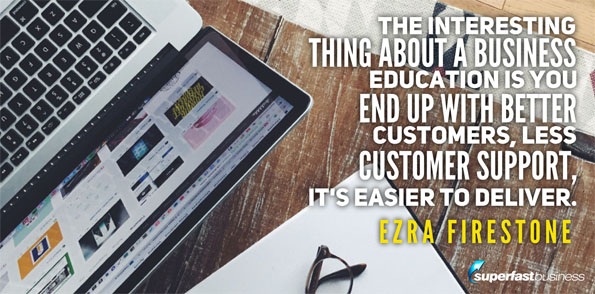 Ezra: Yeah. I mean, you do business education. You do not do business opportunity. And the interesting thing about a business education business is you end up with better customers, less customer support, it’s easier to deliver. It’s about how to grow something that’s already good. It’s not about how to get started in today’s environment.
Ezra: Yeah. I mean, you do business education. You do not do business opportunity. And the interesting thing about a business education business is you end up with better customers, less customer support, it’s easier to deliver. It’s about how to grow something that’s already good. It’s not about how to get started in today’s environment.
James: It’s helping someone change gears and speed up, rather than, you know, where’s the ignition key, and put your foot on the brake before you turn the engine on. That’s just too pedestrian and difficult and some people won’t ever be able to drive and it’s better to just filter them out, like only deal with people who are in motion.
Ezra: Yeah. I mean, I’m not trying to talk down on business opportunity, because I think it’s a wonderful thing.
James: I’m not, I’m just saying it’s just not for me.
Ezra: No, not for me. But the thing about the business opportunity focus, if you really investigate, and I know a lot of the people selling tens of millions in business opportunity online, if you really investigate, it’s about a one to two percent success rate with those things. So most of the people who are coming through those trainings are not having the success with the actual business opportunity.
James: No, it’s the shovel seller making the money. It’s the person selling the education making the money, not the person doing the thing that the education is supposedly teaching. It’s like, what are they doing, not what they’re saying.
From gen pop content to business ed
Ezra: Yeah, well the reason I brought this up was, I wanted to, number one, say that I think it’s good that… You see, the interesting thing that you do that I also do, which is kind of weird, is the content that we put out for free, James. The content that we’re just putting out into the world is gen pop content, meaning anyone, at any level of business, whether they’re started, or not started or just getting there or have success or whatever, could benefit in value from it. But then when you come to buy from us, you’ve got to have something in place for us to help you.
So we kind of do gen pop business content and lifestyle content, but then, when you come to purchase something, it’s only business education. We’re going to help you grow a business that you already have. The reason I was bringing that up was to say, I think that’s smart because you get a wider audience, which means you end up with more people who potentially are going to do well and the folks who end up with the business will then come back to purchase something.
But it led me to this conversation of comparing business models. And I just compared e-commerce to software as a service, I want to also throw in Smart Marketer, the information publishing business that I have, and compare that to the two as well. When you look at Smart Marketer, which did $3.6 million last year, it is not an asset, right? So as soon as I stop creating courses, stop creating blog content, there is no more Smart Marketer. It’s not like BOOM by Cindy Joseph, Zipify Apps. Those are brands that I could sell to a potential buyer and that would have value outside of me running them. They are standalone asset-based businesses. Smart Marketer is just cash flow. So in that sense, it’s much less valuable.
Pros and cons of information publishing
The other thing is that you’ve got subscriptions. You’ve got something smart going on where you’ve got a forum, and you’ve got people get in and you’ve got this ongoing system. The way that I’ve structured Smart Marketer is mostly around informational courses, which take a lot of time and energy to produce and then are outdated within a year, so you’ve got to constantly update those products.
So I would argue that the e-commerce model at scale is much easier to run than information publishing at scale, unless you do it your way where you’ve got, you know, high-end, low-end and you’ve got a consistent product that you’re delivering.
James: Well, I’d argue that in my case, the business isn’t quite as saleable as an e-commerce or a software as a system. However, as you would experience, it’s somewhere where you get a tremendous amount of creative satisfaction.
Ezra: Totally.
James: It’s definitely something you can build a lifestyle around, which is important to me at this stage in life.
Ezra: A hundred percent. Smart Marketer is my life. I really enjoy it, and it pays for my life. You know, it’s very profitable and it’s fun.
James: And I do think you can structure it to sell. It just needs a few years. You could do something like Mindvalley or Udemy or whatever, and start bringing in external experts and take on more of that publishing platform model and make yourself less of the mix.
The reason I dial my brand into my business at the moment is there’s only one me and it’s a much easier position to take in the market. People know me for giving a contrarian model to the norm for getting exceptional results and for being the person behind the success of a lot of experts in their corner helping them, and that suits me right now. But if I were going to sell it, I would need to remove myself out of that messaging over the next few years. And that’s why I have my other little business on the side, which has got nothing to do with me and is saleable.
Ezra: Yes.
James: And it’s built to sell from day one.
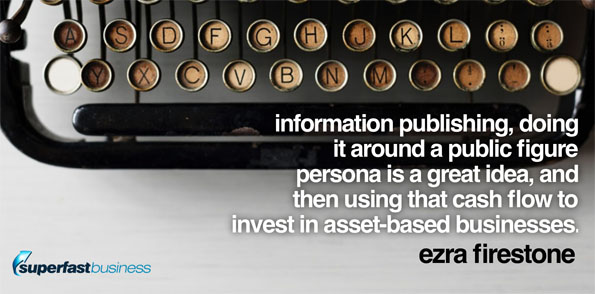 Ezra: I think information publishing, doing it around a public figure persona is a great idea, and then using that cash flow to invest in asset-based businesses. Like if you look at Smart Marketer, it birthed Zipify Apps. One of the reasons why Zipify Apps did as well as it did right out of the gates is because I had the Smart Marketer audience who knew me, who liked me, who trusted me, who was following my content, who would be a perfect fit for the product. And I used the revenue that I was generating from Smart Marketer.
Ezra: I think information publishing, doing it around a public figure persona is a great idea, and then using that cash flow to invest in asset-based businesses. Like if you look at Smart Marketer, it birthed Zipify Apps. One of the reasons why Zipify Apps did as well as it did right out of the gates is because I had the Smart Marketer audience who knew me, who liked me, who trusted me, who was following my content, who would be a perfect fit for the product. And I used the revenue that I was generating from Smart Marketer.
James: And you know, Formula One cars when they are braking, they save energy up that they can then use to accelerate later on, and that’s what I’ve done with the excess capacity with my team. I’ve only got a little team of five now, but when they have spare time, they work on our other project, which I would classify as like a skunkworks project. It’s something to the side, nothing to do with our core, that we take any excess energy or resource and pour into that, which we will sell, and it will fund my entire team for years when we sell it. That’s basically using a byproduct of something that you already have.
So if you’ve got a team doing support for software, they might also be able to do e-commerce and they might also be able to do your info product and you start to get a little bit of economy there.
Ezra: Yeah, totally. You get them doing multiple things. Anyways, I don’t know how we went off on that tangent, but I think it’s just my psychological process around the businesses that I have and how they compare to one another at scale. I don’t know how we got there.
James: No, it’s good. I think you’ve got a filing cabinet with multiple drawers and you can only have one open at any one time or it tips over. So you’re forced into that partitioning and comparison. Like, you pull open the e-commerce drawer, then you close it and you pull out the info product drawer, then you close that, you pull out the software drawer.
That’s how I would operate if I was running multiple businesses, as I did when I had an SEO business and a website development business and a coaching business. You have to partition it. But at least there’s some strength in that overall filing cabinet. You’ve got the same sort of systems for drawer runners and the same filing codec. So you get some economy there, but at some point you could sell a whole drawer if you want.
Ezra: And I fully intend to. Once we have kids. You know, my plan is to take a page out of the James Schramko book and then like a year or two, literally cut my work hours in half. Because we’re going to have kids, you know, and Carrie ain’t having this me working 40, 50 hours a week nonsense in her life.
James: That’s fair enough. And that’s really the thing that, you know, when people look at the guys advocating the hustle and the grind and work 10 times harder, even some of them have kids and I don’t know how that works for them, and good luck to them, I hope it works out fine.
James’s debt to Ezra
But I’m just at that stage where I’ve found my little rhythm. I’m happy with a seven-figure business that allows me to surf every day, thanks to you. Of course, I’ll never, never have enough gratitude to express that.
Ezra: Yeah, feel free to continue to tell me how wonderful I am about that.
James: You’ve really changed my life with that day.
Ezra: I changed your life by dragging you out to a four-foot reef break on a foam board. That’s amazing.
James: Foams are all the rage now, by the way. They are really in.
Ezra: Really?
James: Yeah. They are like the coolest thing you can have, even finless ones. Like, Jamie O’Brien is doing step offs where he’s got…
Ezra: Jamie O’Brien who I went to elementary school with at Sunset Beach Elementary?
James: Yeah. He’s got a whole foamy brand association with Catch Surf, and he’s pushing them hard.
Ezra: Wow.
James: Yup.
Growth for the sake of growth?
Ezra: I was going to bring this up because you mentioned it. I think that this discussion around like, one of the things I noticed at these conferences that we were at is everyone was talking about scale, growth, scale! And I kept thinking like, at what price? Is it like, at what price, at the price of creating crappy products? At the price of working your team super hard? At the price of working yourself super hard?
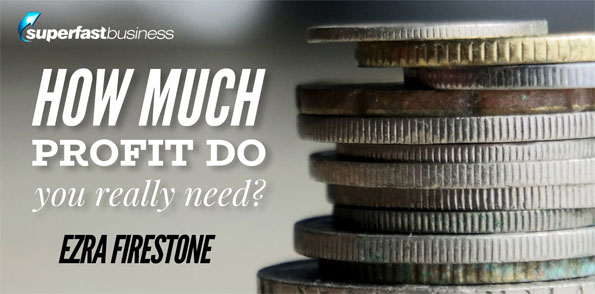 I think it should go in this order – I think it should go, create really amazing products, enjoy the process, and profit. But in that order, right? Like, how much profit do you really need? Like, aren’t we trying to optimize for a really nice lifestyle, where we’ve got time and energy and surplus and we feel good in our body and we’re making money and profitable and able to do things we want in the world?
I think it should go in this order – I think it should go, create really amazing products, enjoy the process, and profit. But in that order, right? Like, how much profit do you really need? Like, aren’t we trying to optimize for a really nice lifestyle, where we’ve got time and energy and surplus and we feel good in our body and we’re making money and profitable and able to do things we want in the world?
I don’t think eight figures or you know, I don’t think scale at any cost is the goal, but that’s what’s being framed at a lot of the places you go, and I just think that maybe that’s not the right frame.
James: That was my first thought. I think it’s great how big and successful the event has become, and I’m sure it makes good profit. I heard some numbers floating around that were interesting. However, I wouldn’t put myself in that position. I don’t want to be running an event like this. My God! I wouldn’t care if you tipped two million dollars or three million dollars profit into my account after that weekend for running the event, I would say it’s not worth it. Because it’s just not where I’m at.
But what I did like was meeting my own customers there. There was a bunch of Silver Circle people. Five or six of the people on the stage, I’ve personally trained or coached, which was a really nice legacy. You know, to see that life cycle of 10 years from starting from scratch to having been able to support some of the people who are literally at the top of their game was very rewarding.
“More money doesn’t necessarily make a better life.”
But you get to choose your position. And as you said, more money doesn’t necessarily make a better life. Now, I do prefer to live in a surplus. I like to have more money coming in than I spend living.
Ezra: You and every other person around.
James: Well, some people don’t do that. They do this thing where they buy things on credit cards with money they don’t have and what’s that quote? To impress people they don’t like.
Ezra: Yeah, things they don’t need for…
No need for a watch
James: So I don’t understand that. A weird thing lately, I’m not even wearing my Rolex watch today, and I just haven’t felt the need to put it on for a few weeks.
Ezra: I never understood watches in general, because dude, your time is on your phone. What do you need the watch for? What is the point of this thing? It’s just heavy and annoying. And you can’t bring it in the water.
James: I don’t know where my phone is half the time these days.
Ezra: Ah, well there you go. Well, that’s different.
James: As incredulous as that makes some of my generation Y friends, or whatever they call the next gen after that, I may not respond to a message for hours. Could you believe that, Ezra? Hours. Like, my kid will send a message. Dad. Dad. Dad. Dad, where are you?
Ezra: Dude, I’m in the water.
James: Like, dude, I don’t have my phone on on my person at all times.
Ezra: Now, listen, you need it on your iPhone on your wrist, so that it reads right to you as you walk. What is it? An iWatch, that’s what you need.
James: The day that someone’s watch rings in the surf, it’s going to be ugly. I can tell you.
Ezra: Oh, it’s happening. And it’s happening right now. It exists. It’s going on.
James: I’ve heard it’s happening.
Ezra: And then a drone, a drone comes and drops their lunch off while they’re out on the break. Just brings them a sandwich.
James: Oh no, that’s just silly. Let those people go and surf in the wave parks.
The marketing around the event
I thought the promotional marketing, the old school marketing, was interesting at this event. They sent direct response to your house before the event. Then they slip a direct response under your door and they’re pushing hard for their upsell the whole event.
Ezra: I mean, they’re incredible marketers, man. And they sell hard and they put on a hell of an event.
James: That’s what they do.
Ezra: And I really respect and have a lot of gratitude for them. Without Digital Marketer….
“Don’t ignore the old methods.”
James: Well, I think the lesson there is, don’t ignore the old methods. While we’re getting all caught up with the many chatbots and this and that, there’s still like a handwritten note or a physical parcel to a house gets a big cut through.
Ezra: Yeah. And the other thing that I think that you start to see at these events is, you turn on the TV in the hotel room and they’re running ads on the TV.
James: And your card for the room is branded to the event.
Ezra: Yeah. It’s really sharp. And then what I thought was fascinating, I thought, I wondered like, how many people were going through the sponsors. There were a lot of sponsors. I wasn’t out in the hall. I had a sponsor booth, but I spoke. So speaking really helps you out of your sponsoring, right? Did you end up visiting any of the sponsors or getting any information or anything?
James: I walked. I mean, I did a lot of walking, I was doing up to 10000 steps a day. So I did walk past the things. I didn’t like the little spruiker setup in the corner of that sponsor’s hall. I felt sorry for the people on that stage, because it seemed like a carnival sideshow and they didn’t have many people in attendance for some of the sessions and it was very hard to hear them.
I saw some red car that you could win and I just thought that’s just male penis marketing, that’s silly.
Ezra: One of the sponsors had a car for sale?
James: Yeah, it was like a red, it was such a, you know, just vomit now type. Really? Get something a little bit more sort of open-minded. It was just too, it was what I expect from an ex-car salesman. It’s not good, and I say that as someone who’s sold cars as a professional. It was too cheesy.
There was a lot of crap in the show bag. I did what everyone else probably did. I did the Gary Halbert A pile, B pile sort over the trash bin. I just tipped it out, chucked 99 percent of it and I kept like, one or two items. I think I kept a Sharpie pen because that’s actually useful and one other thing, maybe a flashlight, and I chucked all the marketing crap, because it’s not that interesting to me. And that’s probably a cynical approach. I imagine a lot of other people kept the material for the purpose of their swipe file, not because they’re a prospect.
I’ll give a shoutout to MerchantWords.
Ezra: MerchantWords, you kept?
James: I don’t know what they do. They put their brand on a Sharpie pen, and that’s clever because a Sharpie is a good quality brand, it’s a useful item and I wouldn’t throw that out, it’s too valuable. Because I would use a Sharpie to make notes on things that are indelible.
Ezra: MerchantWords is an Amazon search engine keyword tool. So basically, it’s like Google Keyword Tool but for Amazon.
James: Well, look at that. See, their marketing’s worked on me, and I’m cynical. So I’m mentioning their brand because it’s on the pen that’s sitting next to my desk that I brought back from another country but I threw everything else out.
Ezra: Like, two years ago, I was trying to convince them to do an affiliate program so I could promote them, and they were not having it. They were like, our product is amazing. Why would we need an affiliate program? And I was like, listen: it’s not that your product’s not amazing. It’s like, it would incentivize me to promote it if you had an affiliate program. And they just were not interested.
So I ended up not…I mean, I told people about it, but I didn’t promote it the way I would have if there was an affiliate program.
Some interesting themes hit on
“You should have a conversation with the customer.”
James: Right. There were a couple of interesting themes hit on during the event. But I thought the interesting ones were community, you should build community. And I know you’re all over that, and I’ve certainly been into that for about 10 years. They said you should have a conversation with the customer, not trying to hide from them, like actually engage them. And you’ll recall, if you go back many, many years ago, I was saying in my presentation, hey, get rid of that no reply email, that offensive, we-don’t-want-to-talk-to-you email. That no reply at. You should let people email you. You actually want to speak to a prospect or a customer.
They talked about getting rid of your trophies and letting the customer be the hero and you be the guide. Which is something we’ve talked about on this particular podcast before. I had a story expert, Eric Hinson, come and talk about that.
They said voice search is going to be important. That might affect you a lot with e-commerce, perhaps. They said you should have mobile responsive websites and you should get people subscribing to multiple places, you know, which is what I called the list guarantee and it was in the original OTR at least five years ago, six years ago now. Don’t just rely on an email address or a Facebook page. Get them on everything. Facebook, YouTube, ManyChat, etc…podcasts.
Ezra: Multiple channels, man. Multiple channels.
James: Yeah. You should know your numbers and use Facebook Live videos, tell stories. That sort of stuff.
Wrapping things up
Ezra: You know, build that community. I think we might be wrapped, man. I’m starting to crash because it’s the end of the night.
James: It’s good. It’s just a great opportunity for you and me to get together and to share some ideas and riff. Thank you so much!
Ezra: I mean, really, my agenda was like, let me get an excuse to do a podcast with James. What can we talk about? Well, we were both at this event.
James: We can talk about basically an industry update. This is the way that two old dogs are seeing the industry. Like, you know, we’re not the longest. There’s people been in there for 20 or 30 years. We’re just talking 10 years down the track. What does it look like from our perspective, what’s happening? It’s very good to go to events, to network. It’s very good to make contacts, to meet customers, to get some ideas.
Make sure that you take minimal notes, follow up on your actions. Leverage the event afterwards, make a podcast about it. Do something for your audience. Observe what’s working. Which marketers are doing well? Which speakers are going well? Where have you changed over the last few times you’ve gone to an event? Get a gauge on progress. Which business model suits you?
We’ve had a great discussion, Ezra. You’re an absolute legend and I want to thank you for coming back and being a guest on this show, as we always make some magic.
Ezra: Hey, man, SuperFastBusiness is where it all started for me. There is no Smart Marketer without SuperFastBusiness. I tell the story of you, and you know what’s funny about it? You had this, you know, your original OTR workshop that you had at your house in Australia before OTR existed. You did a workshop. I think you charged $2000 a pop, and you had a sales page for it where you had drawn out what OTR looks like on a whiteboard. And you said, this is the process that I’ve used. Come to my house in Australia. And I couldn’t afford it. I really, really wanted to be there for that workshop, but I just wasn’t in a place financially to make that happen at the time.
Ended up running into you at an SEO event, I don’t know where it was, some event, because I knew you were an SEO guy and I was an SEO guy. And I said, ‘Hey man, you know, I want to learn your process, but I’m not sure you’ll teach me, because maybe you might look at me as a competitive entity, as someone who wants to sell information to business owners.’ Like why would you show me your process? And you were like, ‘Listen, young grasshopper. I’m going to take you right under my wing. I’m going to show you the ropes.’ So, you know, I’ll be grateful for that forever.
James: Wow, and look at that. If I had said no, I wouldn’t be surfing every day.
Ezra: Yeah. Carrie saw a picture of you, because you know, the first cut of the video we did just came back up to take a look at at T&C, and she was like, ‘boy, James is in shape!’
James: I took my pulse last night, I couldn’t believe this – 55. When I was at school, my pulse was like, 78. So I am actually feeling unbelievable. I feel like Superman. It’s crazy, but I feel like I’m reversing the aging process through my lifestyle. And you know, that first surf at Chun’s Reef was pivotal, a pivotal moment in my life. So, you’re the man.
Alright, you go and rest. I’ll go and do what I’m sure you’ll be able to guess what I’ll be up to. And we’ll speak later. Thanks, Ezra.
Ezra: Alright, man. Thank you so much.
Get world-class personal coaching and supportive community inside JamesSchramko membership
Enjoyed the show? Leave us a review on iTunes
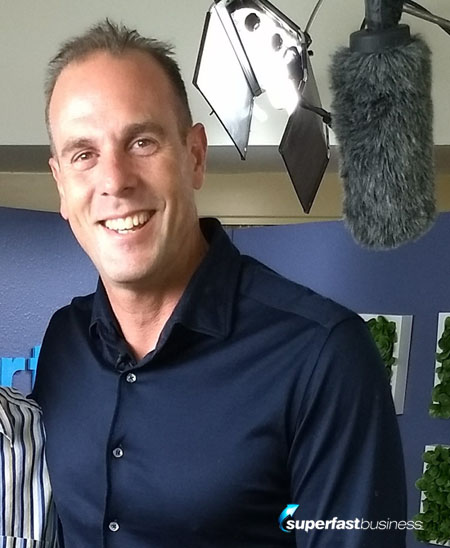
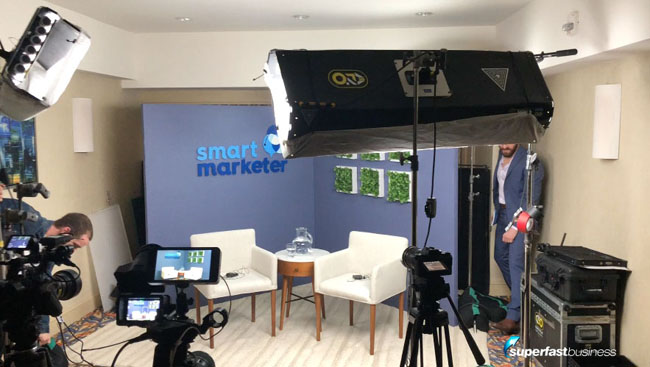
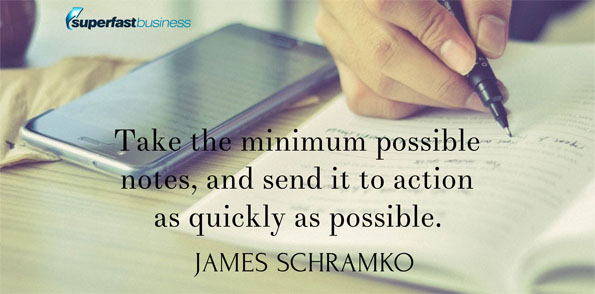
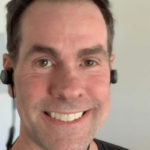

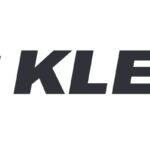






The idea from Ezra of a spontaneous occasional Think Act Get episode sounds freakin’ awesome by the way ?
#MissingTAG
The idea from Ezra of a spontaneous occasional Think Act Get episode sounds freakin’ awesome by the way 👍
#MissingTAG
I’m keen to do those! I miss them too!